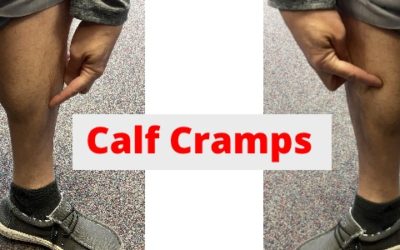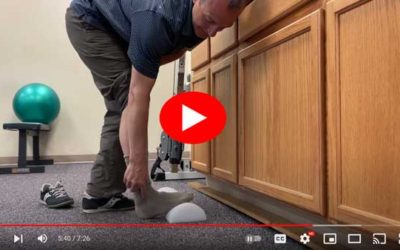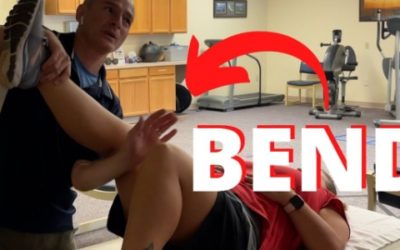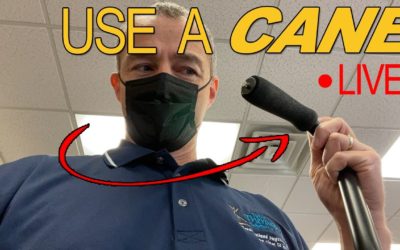KNEE PAIN – Why Does My Total Knee Replacement Still Hurt So Much
Persistent Knee Pain After Total Knee Replacement Surgery
Pain is a highly complex human experience that cannot be easily explained by mechanical problems.
It is possible to have scar tissue without pain. It is possible to have limited range of motion without pain. It is even possible to have redness and swelling without pain.
But many of the patients I work with in my physical therapy clinic who are experiencing persistent pain after total knee replacement are experiencing all of these impairments AND pain.
What percent of total knee replacements are successful?
By several accounts nearly 20% of patients are not happy with the outcome of their total knee replacement. [1]
Why does my total knee replacement still hurt?
One of my favorite clinical studies reviewing different aspects of pain following a total knee replacement is The painful knee after total knee arthroplasty: evaluation and management. [2]
A list of the most common causes of pain:
- Infection
- Mechanical Instability
- Loosening of the component
- Periprosthetic fracture
- Anterior knee pain
- Overhang
- Non-Joint Causes:
- Soft tissue irritation
- Neuropathic pain
- Complex regional pain syndrome
In future updates to this article, I will be providing more details on the above conditions.
What is considered normal knee pain?
Many of the patients I work with in my physical therapy clinic will ask “Is this normal?”
There is something calming about knowing the pain you feel is normal or common.
Normal Knee Pain After Joint Replacement Surgery
Normal knee pain would be characterized by soreness throughout the knee, thigh, and calf. It is often described as a 4 out of 10 increasing to a 7 out of 10 at the most.
Patients will report the first 24 hours after surgery feeling lower pain levels than compared to the next 48 to 72-hour. After 72 hours the pain levels should reduce to a more comfortable level.
Normal pain may increase with activity and normalize with rest. Normal pain often responds well to pain medication, icing, or moist heat.
What are Abnormal Pain Levels
Abnormal pain would be characterized by pain that increases throughout the day and doesn’t relent with pain medication, icing, or moist heat. High pain levels cause increased respiration rates, sweating, and signs of stress.
Abnormal pain may cause loss of appetite, nausea, and anxiety.
In these cases, it is important that the patient contact the surgical team for a possible change in pain medication or further medical assessment.
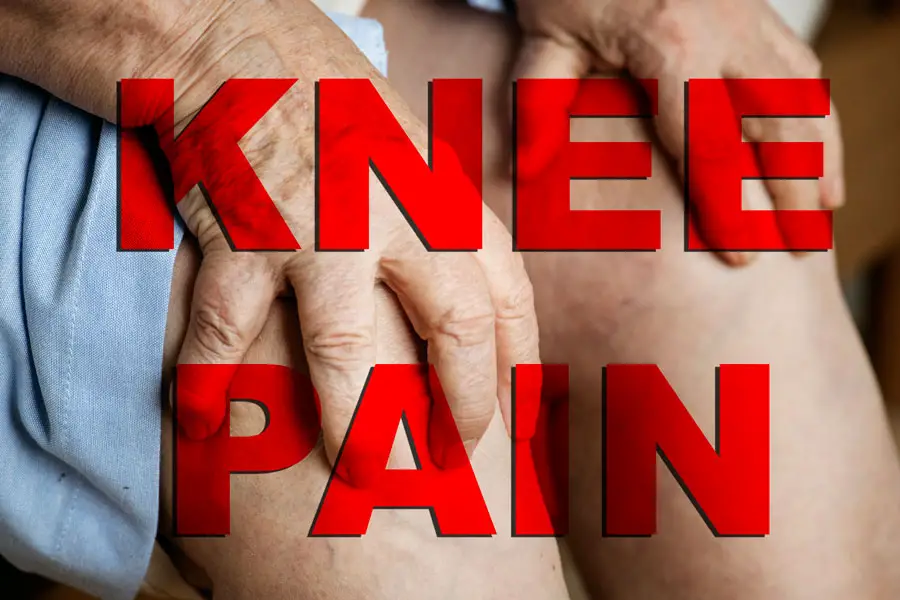
Infection After Total Knee Replacement
While it is true that an infection may also cause pain after a total knee replacement, an infection may also be present without pain. Some classic warning signs to watch for infection include:
- Excessive and worsening redness
- Seepage, drainage, or oozing
- Redness that progressively extends away from the knee
- Increased warmth at the knee
- Increased body temperature
If you or your therapist have reasons to suspect a possible infection, it is important that you contact your surgical team or go to your local emergency room for further medical assessment.
Mechanical Instability
There have been reported cases in which the prosthesis implanted during a total knee replacement surgery becomes unstable or the ligaments surrounding the knee become ruptured.
Mechanically instability is often associated with an unsafe feeling while walking to stepping on the surgical leg, but it isn’t often associated with pain in the knee joint.
A knee that has become mechanically unstable is loose and therefore patients do not feel the pain associated with knee stiffness.
Citations and Reference:
More Blog Posts …
Is a recumbent bike good for knee replacement?
Riding a recumbent bike after a total knee replacement can be a great way to increase range of motion, increase cardiorespiratory fitness, and improve overall well being. In this video I explain some tips and tricks we use in the clinic to help clients maximize the benefit of riding this bike.
Calf Cramps How to STOP Calf Cramps
How to Stop Calf Cramps at Night When They are Happening One of the must frustrating times to get a calf cramp is in the middle of the night. You may be sound asleep when all of a sudden you experience this intense shooting pain which causes you to draw up in writhing...
3 TIPS to STOP Ankle Pain After Knee Replacement Surgery
Ankle pain after total knee replacement surgery is very common. Osteoarthritis of the knee causes the knee to change shape over time. The knee replacement surgery will correct any malalignment of the knee, but it causes excessive stress on the ankle and hip. In this...
Is a Manipulation Under Anesthesia MUA Painful
No, during a manipulation under anesthresia after a total knee replacement you will be placed under sedation and the procedure is painless. During the following 24 to 48-hours you may feel some increased soreness and swelling, but very few patients actually reqort...
Recovery After MUA Manipulation Under Anesthesia [VIDEO]
Video SeriesAnthony Maritato, PT has been a licensed physical therapist and private practice owner since 2006. Ohio license #PT011602. Anthony has been passionate about helping patients recover from total knee replacement surgery as well as rotator cuff repair surgery.
Hip and Groin Pain After Total Knee Replacement Surgery
I couldn't find peer-reviewed data to support an answer to this question, but as a physical therapist with 20 years of history in the clinic, I can tell you that anterior hip and groin pain after a total knee replacement is not uncommon. As of writing this article on...
How Painful Is A Total Knee Replacement
How long does the pain last after a knee replacement? * How bad is the pain after knee replacement surgery? * Why is a knee replacement so painful? * What helps pain after a total knee replacement?
2 Reasons why your knee replacement sounds like Velcro tearing!
The two reasons why your total knee replacement sounds like Velcro tearing when standing up from a chair or walking downstairs are because the underside of your patella is rubbing against the bottom of your femur or you are experiencing the sensation of scar tissue...
When can I switch from a walker to a cane?
Between 10 and 14 days after total knee replacement surgery, most patients have switched from a walker to a cane. Of course, some patients never use a cane and just progress from the walker to no assistive device after a couple of days, while other patients depend on...
When can I walk upstairs normally after TKR?
Article Updated: 09/02/2023Walking Upstairs Post-Op Throughout my extensive career as a physical therapist specializing in total knee replacements, I've observed a consistent pattern: the 10-week post-operative mark often serves as a significant milestone for...

